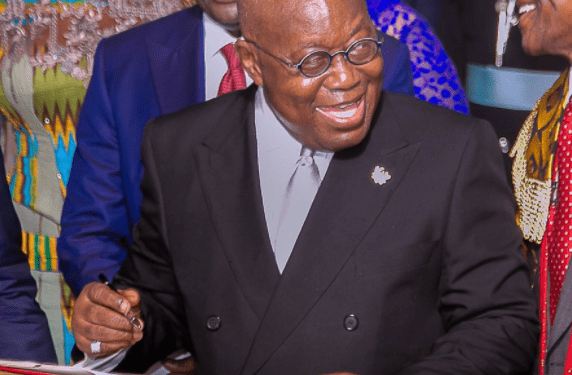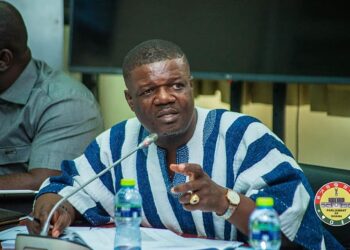The President, Nana Addo Dankwa Akufo-Addo, has presented Presidential Charters to 14 universities at a ceremony at the Jubilee House.
The universities include the Academic City University College in Haatso-Accra, KAAF University College, in Fetteh Kakraba, Entrance University College of Health Sciences at Spintex in Accra, the Garden City University College, Kenyase-Kumasi, the Family Health University College, Teshie-Accra, Ensign Global College, Kpong and the Thrivus Institute for Biomedical Science and Technology in Lashibi- Accra.
Others are the Heritage Christian University College in Amasaman-Accra, the University College of Gold Coast (formerly known as Accra Business School), Spintex-Accra, the Knutsford University College, East Legon-Accra, the Nobel International Business School, South Legon-Accra, and the Accra Metropolitan University College (formerly known as Laweh University College), Nungua-Accra.
The rest are the African University College of Communications and Business (formerly known as African University College of Communications), Adabraka- Accra and the National Defence College (formerly known as Kofi Annan International Peace Keeping Training Centre and Ghana Armed Forces Command and Staff College), Teshie-Accra.

The event was attended by the Chief of Staff, Akosua Frema Osei-Opare; the Minister of Education, Dr Yaw Osei Adutwum, the Chief of Defence Staff, Lt General Thomas Oppong-Peprah, director-generals of various educational agencies, registrars and senior officials of the universities and members of the Ghana Tertiary Education Commission, among others.
Speaking after the presentation, President Akufo-Addo said the presidential charter represented the highest recognition that a tertiary institution could achieve. It is the result of a rigorous process, and such university college must meet stringent criteria established by the Ghana Tertiary Education Commission, GTEC.
“These criteria include excellence in governance, quality assurance, academic delivery, research and community engagement,” he said.
The President said the journey of the 14 institutions had been one of relentless effort and dedication.
“Through mentorship by established universities, they have built robust governance structures, invested in modern facilities, expanded their academic programmes and upheld the highest standards of teaching and research. This is not only a reflection of their commitment to quality education but it’s also an acknowledgement of their contribution to the broader development of the nation.
He charged the newly chartered universities to maintain the high standards that led to their successes and achievements.
“Uphold the highest standards of academic integrity. Foster an environment of inclusivity and diversity and prioritise the holistic development of your students,” President Akufo-Addo charged the universities.
“While you celebrate this achievement, we must remain mindful of the challenges ahead. The rapid evolution of technology, the increasing demand for specialised skills, and the need for sustainable funding models are issues that require our collective attention,” President Akufo-Addo stated.
The President also asked for support for the chartered universities in their journey towards excellence.
Bigger, pivotal role
The Founder and President of Accra Metropolitan University, Prof. Goski Alabi, who spoke on behalf of the 14 private universities, thanked the President for granting the Charters to the 14 institutions, which would advance tertiary education in the country, describing it as a testament of the government’s commitment to ensuring quality, access and autonomy within the country’s tertiary education system.
She also expressed gratitude to GTEC for its unwavering support, rigorous assessment, and guidance throughout the Charter assessment and recommendation process.
“As autonomous institutions, we pledge to uphold the highest standards of academic excellence, innovation, and service to our society.”
“With this Charter, we are confident that private tertiary education will play even a bigger and pivotal role in improving Ghana’s gross tertiary enrolment ratio, aligning with the national agenda for quality, inclusiveness and accessible education, to support the Ghana we all want and the Africa’s Agenda 2063,” Prof. Mrs Alabi said.
She, however, appealed to the government to continue to create an enabling environment for private universities to thrive.
“This includes policies that encourage research, innovation and private-public partnerships, as well as access to affordable financing for infrastructure and other developmental projects,” Prof. Alabi added.
Source: Graphic.com.gh










Discussion about this post